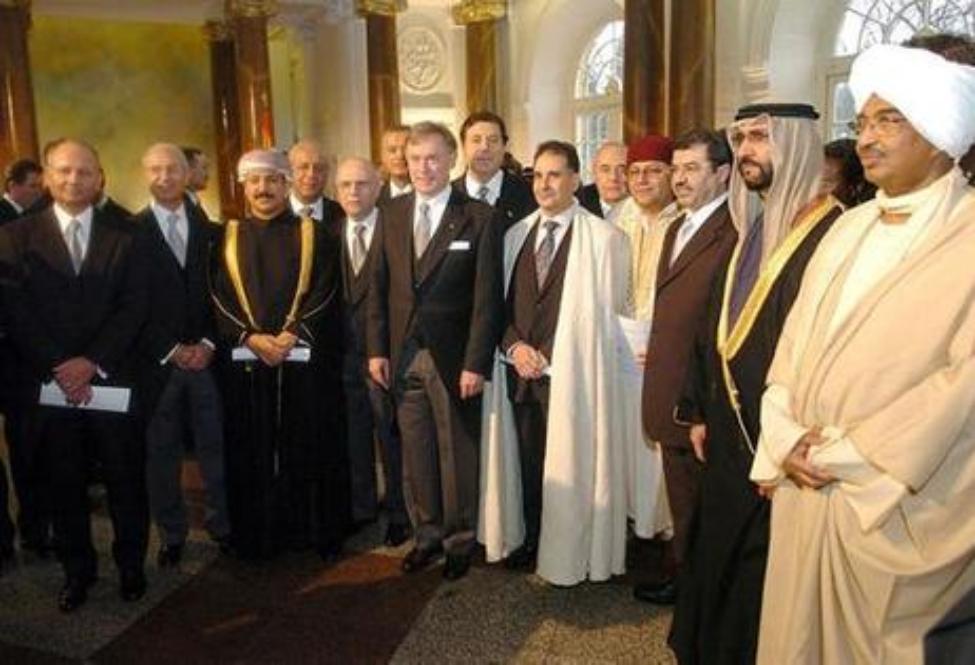I bid you all a warm welcome here in Schloss Charlottenburg.
May I also thank you very much, Nuncio, for your kind words and good wishes for the New Year.
I.
This New Year reception is different from past gatherings. Our minds are still full of the harrowing scenes of death, destruction and suffering caused by the tsunami disaster in South Asia. Untold numbers have lost their lives. Entire regions have been laid waste. Millions have been dispossessed. The devastating power of the natural forces unleashed by the disaster took us unawares, a grim reminder that man does not reign supreme - and we ignore nature at our peril.
The tragedy has forged a bond between the inhabitants of the disaster zone and their guests. Among the victims we count also many Germans and nationals of our European neighbours. We grieve for all those of whatever nationality who perished and we share the anguish of those who have lost loved ones or are still waiting desperately for news of their fate.
I invite you to join me in a minute's silence.
Thank you.
II.
As this disaster reminds us, we all live in the same world and across this world people are now reaching out to one another.
I am very glad to see people in Germany, too, reaching out in this way. In their eagerness to help, our fellow citizens and people all over the world are donating money on a scale never before seen. From that we can all take courage. Our citizens know they cannot abandon people in Asia to their fate. As inhabitants of this planet Earth, they know we all are dependent on one another.
III.
Political leaders, too, must now act resolutely and with common purpose. Only by pulling together can the international community learn the lessons of this disaster. Moved by profound solidarity with the stricken nations, Germany is ready to play its part in this endeavour.
The first priority is to provide humanitarian assistance, to save lives, relieve suffering and get unbureaucratic help to the victims.
In the medium term we need to focus on reconstruction.
Looking to the long term, this tragedy gives cause to reflect at more fundamental level on what we are doing in the area of development cooperation. This year we will be taking stock of the progress made in realizing the Millennium Development Goals set in 2000. While substantial headway has been made, there are clearly continuing deficits which cannot be overlooked. I would like to see the solidarity we manifestly feel today translate into a new awareness that the global fight against poverty is of vital importance to us all. When - if not now - will we muster the strength to break with old habits and past mistakes? When - if not now - will we begin to understand that everything we do is part and parcel of global governance? Yes, of course we must help. But we must help not just right now, but in a sustained and long-term way.
The year 2005 can, despite this terrible catastrophe, still be a good year if we view the vigorous response to this cataclysm as the start of a new effort to realize the UN's Millennium Development Goals endorsed by all world leaders.
IV.
For all the horror of this catastrophe, we must not forget the suffering and poverty that exists especially in Africa. My first round-trip abroad in December took me to Sierra Leone, Benin, Ethiopia and Djibouti. I saw there much that I found encouraging and heartening. There is now a much greater awareness that African countries need to take responsibility for their own future and that economic development requires functioning government structures and respect for the rule of law. The impressive efforts of a host of civil-society groups - particularly women's initiatives - I took as further confirmation that Africa is now on the way to a brighter future. Africa needs to take its rightful place in the world - as a partner among partners that are all dependent on one another and mutually complement and benefit one another.
V.
Seeing the plight of people around the Indian Ocean, in Africa and also parts of Latin America, everyone surely realizes how fortunate we are here in Europe. With the accession of ten new member states to the European Union, the partition of Europe is now over for good. For us Germans in particular this historic event is cause for rejoicing.
We must now all join hands to work for the speedy ratification of the Treaty establishing a Constitution for Europe. And I personally will do my utmost to encourage face-to-face contacts between people, for that is the soil in which a sense of European identity can take root and grow.
VI.
As you have seen for yourselves, also in Germany things are now beginning to move. Important changes are now in place, yet we know, too, that further reforms are needed to modernize our federal system as well as our social security systems and education.
In recent days people in Germany have demonstrated fantastic solidarity, to the surprise of many who would never have thought such generosity possible. I for my part have really no doubt that the changes our country needs will be accomplished. So I can promise you, ladies and gentlemen, that Germany will continue to be a reliable and effective partner.
VII.
I thank you for the good cooperation we enjoyed last year and look forward to working with you in the same spirit this year. I hope you enjoy your stay in Germany, and for the year that has just begun I wish you and your families peace, happiness and God's blessing.


